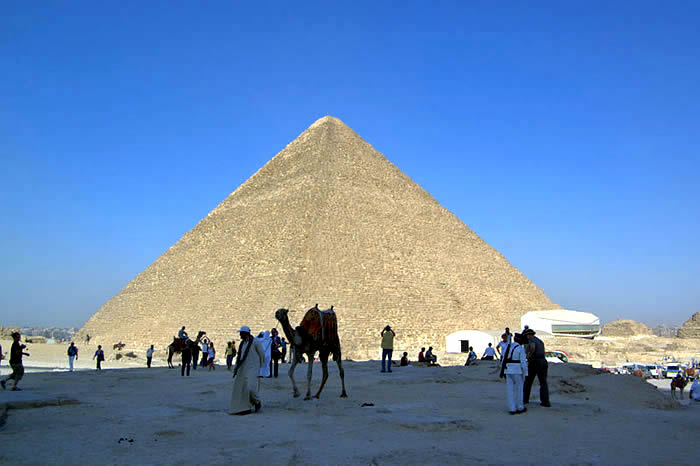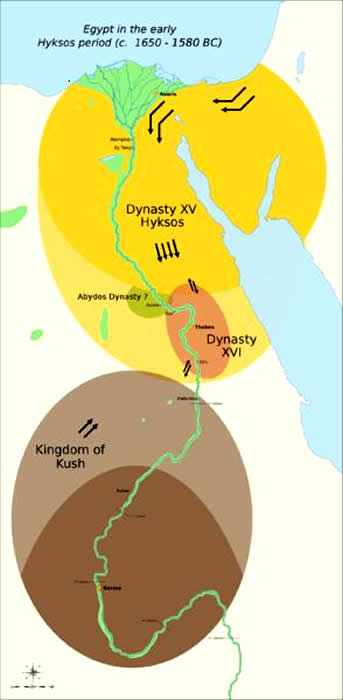 Hyksos Empire
Hyksos Empire

(Text by Duane R. Hurst © 2013)
Click on a link to view its information and pictures.
|
HYKSOS LINKS: Significant Event: Pharaoh Ahmose I Battles Hyksos Use of Horse-Drawn Chariot Main Cities: Avaris; Heliopolis; Tanis Time: 1800-1550 BC Language: Hurrian Personage: Ahhotep 1; Apophis; Khyan Religion: Hyksos Gods Related Country: Egypt Brief History: I have included only a few items concerning the history of this empire. A good source for more details can be found on Wikipedia or in history books. ORIGINS: Circa 1800 BC, some Hyksos ("Rulers of Foreign Countries;" also incorrectly called "Shepherd Kings") first appeared in Egypt, coming from Hayastan (the Armenian Highlands) in western Asia. Reputed to be a Scythian tribe called Hucsos near ancient Euxine (Black Sea). An Egyptian stela recorded that Apophis was a chief of Retjenu, ancient Egyptian name for Canaan. In 1710 BC Khendjer invaded the Nile Delta of lower Egypt. The Hyksos were successful due to superior tactics and weapons, particularly the light horse-drawn chariot and sickle-sword. In 1648 BC, King Salitis consolidated Hyksos' control over northern Egypt and founded the 15th Dynasty. Conquered territory included the short-lived Dynasty of Abydos and briefly that of Egyptian Thebes in the south. Hyksos allies included Amorites, Hurrians and Nubians of Kush. An Egyptian pharaoh in the south was Antef VI. |
|
|
It was during the Hyksos period that
Joseph was sold into slavery, but
eventually became second only to pharaoh. Jacob's
family received choice land in Goshen and earned enmity from true Egyptians. Goshen has been identified as
Wadi Tumilat (ancient area for
Canal of the Pharaohs). Joseph
reportedly supervised construction of the Bahr Yussef (Waterway of Joseph),
a canal which currently exists parallel to the Nile River. At least two descendants of Joseph became pharaohs: Khyan and Akhenaten. Both were represented by artifacts located at Kincaid Cave in Arizona. Seteprene, son of Akhenaten, ruled at Egypt and the Kincaid Cave area, according to artifacts found at the Cave and reported by the Smithsonian Institute. Egyptians began constructing the cave complex circa 1700 BC, which could house a population of 50,000. EGYPTIAN TRIUMPH: Pharaoh Ahmose I, founder of the Egyptian 18th dynasty, effectively used a newly constructed chariot corps to defeat and expel the Hyksos circa 1520 BC. He reportedly besieged their capital at Avaris and bested them in chariot battle. Pharaoh Khamose ousted the last Hyksos in 1550 BC. A female regent, Ahhotep 1, also played an important role in ousting the Hyksos. Modern archeologists found military tributes to this in her tomb. |
|
|
© Page Publisher: Duane R. Hurst
|


